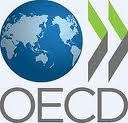
.
February 12, 2013 - 9:07 AM
PARIS - A study prepared for the G20 countries says global solutions are required to close legal gaps that permit large multinationals to avoid paying their fair share of taxes.
The Organization for Economic Co-Operation and Development studied the issue and found that some multinationals use strategies that allow them to pay as little as five per cent in corporate taxes.
The OECD says many rules designed to protect multinational corporations from being double-taxed go too far and sometimes allow them to pay no taxes at all.
It says such rules do not properly reflect today’s economic integration across borders, the value of intellectual property or new communications technologies.
The report was released Tuesday, ahead of a weekend meeting of finance ministers and central bankers from 20 of the world's leading economic powers.
The OECD says the gaps that enable multinationals eliminate or reduce their taxation give them an unfair competitive advantage over smaller businesses.
That hurts investment, growth and employment and can leave average citizens footing a larger chunk of the tax bill, the OECD says.
“These strategies, though technically legal, erode the tax base of many countries and threaten the stability of the international tax system,” OECD Secretary General Angel Gurria said Tuesday in releasing the study.
“As governments and their citizens are struggling to make ends meet, it is critical that all taxpayers — private and corporate — pay their fair amount of taxes and trust the international tax system is transparent."
The OECD said the practices multinational enterprises use to reduce tax liabilities have become more aggressive over the last decade.
"Some, based in high-tax regimes, create numerous offshore subsidiaries or shell-companies, each time taking advantage of the tax breaks allowed in that jurisdiction," it said.
"They also claim expenses and losses in high-tax countries and declare profits in jurisdictions with a low or no tax rate."
The report does not suggest optimal tax rates, since each government decides that on its own.
However, the OECD said that in coming months it will draw up a plan in co-operation with governments and the business community that will further quantify the corporate taxes lost and provide concrete methods and timelines for reinforcing the integrity of the global tax system.
The OECD, with headquarters in Paris, is a global economic policy forum that provides analysis and advice to its 34 member governments and other countries worldwide.
News from © The Canadian Press, 2013